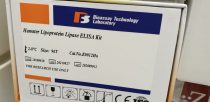The present coronavirus illness of 2019 (COVID-19) pandemic, brought on by the extreme acute respiratory syndrome coronavirus (SARS-CoV)-2, has spurred a wave of analysis of practically unprecedented scale. Among the completely different methods which are getting used to grasp the illness and develop efficient remedies, the research of bodily molecular interactions can present fine-grained decision of the mechanisms behind the virus biology and the human organism response. We built-in large-scale genomic and proteomic knowledge to determine novel plasma proteins related to EOC danger.
We current a curated dataset of bodily molecular interactions centered on proteins from SARS-CoV-2, SARS-CoV-1 and different members of the Coronaviridae household that has been manually extracted by International Molecular Exchange (IMEx) Consortium curators. Currently, the dataset includes over 4400 binarized interactions extracted from 151 publications. The dataset may be accessed in the usual codecs beneficial by the Proteomics Standards Initiative (HUPO-PSI) on the IntAct database web site (https://www.ebi.ac.uk/intact) and can be repeatedly up to date as analysis on COVID-19 progresses.
Most girls with epithelial ovarian most cancers (EOC) are recognized after the illness has metastasized and survival on this group stays poor. Circulating proteins related to the chance of growing EOC have the potential to function biomarkers for early detection and prognosis. We used the germline genetic variants most strongly related (P <1.5 × 10-11) with plasma ranges of 1329 proteins in 3301 wholesome people from the INTERVAL research to foretell circulating ranges of these proteins in 22,406 EOC circumstances and 40,941 controls from the Ovarian Cancer Association Consortium (OCAC). Association testing was carried out by weighting the beta coefficients and customary errors for EOC danger from the OCAC research by the inverse of the beta coefficients from INTERVAL.
Synergistic consortium of useful microorganisms in rice rhizosphere promotes host protection to blight-causing Xanthomonas oryzae pv. oryzae
Rice crops primed with useful microbes Bacillus amyloliquefaciens and Aspergillus spinulosporus with biocontrol potential in opposition to Xanthomonas oryzae pv. oryzae, offered safety from illness by reprogramming host defence response underneath pathogen problem. Plant-beneficial microbe interactions going down within the rhizosphere are broadly used for progress promotion and mitigation of biotic stresses in crops. The current research goals to judge the protection community induced by useful microorganisms within the rice rhizosphere, and the three-way interplay concerned upon inoculation with dreadful micro organism Xanthomonas oryzae pv. oryzae (Xoo).
Differential expression of defense-related enzymes, proteins, and genes in rice selection Swarna primed with a microbial consortium of Bacillus amyloliquefaciens and Aspergillus spinulosporus had been quantified within the presence and absence of Xoo. The time-based expression profile alterations in leaves underneath the 5 distinct remedies “(unprimed unchallenged, unprimed Xoo challenged, B. amyloliquefaciens primed and challenged, A. spinulosporus primed and challenged, B. amyloliquefaciens and A. spinulosporus consortium primed and challenged)” revealed differential early upregulation of SOD, PAL, PO, PPO actions and TPC content material in useful microbes primed crops compared to unprimed challenged crops.
The enhanced protection response in all of the rice crops recruited with useful microbe was additionally mirrored by diminished plant mortality and an elevated plant dry biomass and chlorophyll content material. Also, greater than 550 protein spots had been noticed per gel by PD Quest software program, a complete of 55 differentially expressed protein spots had been analysed used MALDI-TOF MS, out of which 48 spots had been acknowledged with a major rating with direct or supporting roles in stress alleviation and illness resistance. qRT-PCR was carried out to match the biochemical and proteomic knowledge to mRNA ranges. We conclude that protein biogenesis and alleviated resistance response could contribute to improved biotic stress adaptation.
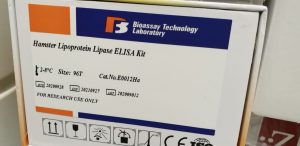
A glycolysis-related gene expression signature in predicting recurrence of breast most cancers
Metabolic change is the hallmark of most cancers. In the current research, we aimed to develop a glycolysis-related gene signature to foretell the prognosis of breast most cancers sufferers. Gene expression profiles and scientific knowledge of breast most cancers sufferers had been obtained from the GEO database. A four-gene based mostly signature (ALDH2, PRKACB, STMN1 and ZNF292) was developed to separate sufferers into high-risk and low-risk teams. These outcomes would possibly speed up the practical regulation of the Xoo-receptive proteins within the presence of useful rhizospheric microbes and their computation as promising molecular markers for superior illness administration.
Patients within the low-risk group had considerably higher prognosis than these within the high-risk group. Time-dependent ROC evaluation demonstrated that the glycolysis-related gene signature had glorious prognostic accuracy. We additional confirmed the expression of the 4 prognostic genes in breast most cancers and paracancerous tissue samples utilizing qRT-PCR evaluation. Expression stage of PRKACB was larger in paracancerous tissues, whereas STMN1 and ZNF292 had been overexpressed in tumor samples, no vital distinction was noticed in ALDH2 expression stage.
 Peptide) Angiotensin II (AngII) Peptide |
|
20-abx652274 |
Abbexa |
-
Ask for price
-
Ask for price
-
Ask for price
-
Ask for price
-
Ask for price
|
- 100 ug
- 10 ug
- 1 mg
- 200 ug
- 50 ug
|
|
|
 [Val5] Angiotensin II Peptide |
|
20-abx265197 |
Abbexa |
-
Ask for price
-
Ask for price
-
Ask for price
|
|
|
|
 [Sar1] Angiotensin II Peptide |
|
20-abx266586 |
Abbexa |
-
Ask for price
-
Ask for price
-
Ask for price
|
|
|
|
 [Val5] Angiotensin II Peptide |
|
abx265197-1mg |
Abbexa |
1 mg |
EUR 250 |
 [Sar1] Angiotensin II Peptide |
|
abx266586-1ml |
Abbexa |
1 ml |
EUR 325 |
 [Sar1] Angiotensin II Peptide |
|
abx266586-200l |
Abbexa |
200 µl |
EUR 237.5 |
 Peptide (OVA)) Angiotensin II (Ang II) Peptide (OVA) |
|
20-abx651045 |
Abbexa |
-
Ask for price
-
Ask for price
-
Ask for price
-
Ask for price
-
Ask for price
|
- 100 ug
- 10 ug
- 1 mg
- 200 ug
- 50 ug
|
|
|
 Peptide (OVA)) Angiotensin II (Ang II) Peptide (OVA) |
|
abx651045-100g |
Abbexa |
100 µg |
EUR 500 |
 Peptide (OVA)) Angiotensin II (Ang II) Peptide (OVA) |
|
abx651045-200g |
Abbexa |
200 µg |
EUR 1550 |
 Peptide (OVA)) Angiotensin II (Ang II) Peptide (OVA) |
|
abx651045-50g |
Abbexa |
50 µg |
EUR 425 |
 Peptide) Human Angiotensin II (Ang II) Peptide |
|
abx265094-1mg |
Abbexa |
1 mg |
EUR 250 |
 Peptide) Angiotensin II (4-8) Peptide |
|
20-abx265182 |
Abbexa |
-
Ask for price
-
Ask for price
-
Ask for price
|
|
|
|
 Peptide) Angiotensin II (3-8) Peptide |
|
20-abx265183 |
Abbexa |
-
Ask for price
-
Ask for price
-
Ask for price
|
|
|
|
 Peptide) Angiotensin II (1-4) Peptide |
|
20-abx265185 |
Abbexa |
-
Ask for price
-
Ask for price
-
Ask for price
|
|
|
|
 Peptide) Angiotensin II (4-8) Peptide |
|
abx265182-1mg |
Abbexa |
1 mg |
EUR 212.5 |
 Peptide) Angiotensin II (3-8) Peptide |
|
abx265183-1mg |
Abbexa |
1 mg |
EUR 212.5 |
 Peptide) Angiotensin II (1-4) Peptide |
|
abx265185-10mg |
Abbexa |
10 mg |
EUR 487.5 |
 Peptide) Angiotensin II (1-4) Peptide |
|
abx265185-1mg |
Abbexa |
1 mg |
EUR 237.5 |
 Peptide) Angiotensin II (1-4) Peptide |
|
abx265185-5mg |
Abbexa |
5 mg |
EUR 325 |
 Angiotensin II Substrate Peptide |
|
20-abx265623 |
Abbexa |
-
Ask for price
-
Ask for price
-
Ask for price
|
|
|
|
 Angiotensin II Substrate Peptide |
|
abx265623-100tests |
Abbexa |
100 tests |
EUR 425 |
 Angiotensin II Substrate Peptide |
|
abx265623-200tests |
Abbexa |
200 tests |
EUR 750 |
 Angiotensin II Substrate Peptide |
|
abx265623-50tests |
Abbexa |
50 tests |
EUR 300 |
 [Asn1,Val5]-Angiotensin II Peptide |
|
20-abx266003 |
Abbexa |
-
Ask for price
-
Ask for price
-
Ask for price
|
|
|
|
 [Sar1,Gly8]-Angiotensin II Peptide |
|
20-abx266581 |
Abbexa |
-
Ask for price
-
Ask for price
-
Ask for price
|
|
|
|
 [Sar1,Ala8]-Angiotensin II Peptide |
|
20-abx266583 |
Abbexa |
-
Ask for price
-
Ask for price
-
Ask for price
|
|
|
|
 [Sar1,Ile4,8]-Angiotensin II Peptide |
|
20-abx266584 |
Abbexa |
-
Ask for price
-
Ask for price
-
Ask for price
|
|
|
|
 [Sar1,Thr8]-Angiotensin II Peptide |
|
20-abx266585 |
Abbexa |
-
Ask for price
-
Ask for price
-
Ask for price
|
|
|
|
 Angiotensin II [Sar1 Ile8] Peptide |
|
20-abx266588 |
Abbexa |
-
Ask for price
-
Ask for price
-
Ask for price
|
|
|
|
 [Sar1,Gly8]-Angiotensin II Peptide |
|
abx266581-1ml |
Abbexa |
1 ml |
EUR 325 |
 [Sar1,Gly8]-Angiotensin II Peptide |
|
abx266581-200l |
Abbexa |
200 µl |
EUR 237.5 |
 [Sar1,Ala8]-Angiotensin II Peptide |
|
abx266583-1ml |
Abbexa |
1 ml |
EUR 325 |
 [Sar1,Ala8]-Angiotensin II Peptide |
|
abx266583-200l |
Abbexa |
200 µl |
EUR 237.5 |
 [Sar1,Ile4,8]-Angiotensin II Peptide |
|
abx266584-1ml |
Abbexa |
1 ml |
EUR 325 |
 [Sar1,Ile4,8]-Angiotensin II Peptide |
|
abx266584-200l |
Abbexa |
200 µl |
EUR 237.5 |
 [Sar1,Thr8]-Angiotensin II Peptide |
|
abx266585-1ml |
Abbexa |
1 ml |
EUR 325 |
 [Sar1,Thr8]-Angiotensin II Peptide |
|
abx266585-200l |
Abbexa |
200 µl |
EUR 237.5 |
 Angiotensin II [Sar1 Ile8] Peptide |
|
abx266588-1ml |
Abbexa |
1 ml |
EUR 425 |
 Angiotensin II [Sar1 Ile8] Peptide |
|
abx266588-200l |
Abbexa |
200 µl |
EUR 275 |
 [Asn1,Val5]-Angiotensin II Peptide |
|
abx266003-100tests |
Abbexa |
100 tests |
EUR 250 |
 [Asn1,Val5]-Angiotensin II Peptide |
|
abx266003-200tests |
Abbexa |
200 tests |
EUR 337.5 |
 [Asn1,Val5]-Angiotensin II Peptide |
|
abx266003-500tests |
Abbexa |
500 tests |
EUR 575 |
 Peptide (OVA)) Human Angiotensin II (Ang II) Peptide (OVA) |
|
abx651775-5mg |
Abbexa |
5 mg |
EUR 562.5 |
 Peptide) Angiotensin I / II (5-8) Peptide |
|
20-abx265760 |
Abbexa |
-
Ask for price
-
Ask for price
-
Ask for price
|
|
|
|
 Peptide) Angiotensin I / II (3-7) Peptide |
|
20-abx265779 |
Abbexa |
-
Ask for price
-
Ask for price
-
Ask for price
|
|
|
|
 Peptide) Angiotensin I / II (1-6) Peptide |
|
20-abx265799 |
Abbexa |
-
Ask for price
-
Ask for price
-
Ask for price
|
|
|
|
 Peptide) Angiotensin I / II (5-8) Peptide |
|
abx265760-100tests |
Abbexa |
100 tests |
EUR 212.5 |
 Peptide) Angiotensin I / II (5-8) Peptide |
|
abx265760-200tests |
Abbexa |
200 tests |
EUR 287.5 |
 Peptide) Angiotensin I / II (5-8) Peptide |
|
abx265760-500tests |
Abbexa |
500 tests |
EUR 462.5 |
 Peptide) Angiotensin I / II (3-7) Peptide |
|
abx265779-100tests |
Abbexa |
100 tests |
EUR 212.5 |
 Peptide) Angiotensin I / II (3-7) Peptide |
|
abx265779-200tests |
Abbexa |
200 tests |
EUR 287.5 |
 Peptide) Angiotensin I / II (3-7) Peptide |
|
abx265779-500tests |
Abbexa |
500 tests |
EUR 462.5 |
 Peptide) Angiotensin I / II (1-6) Peptide |
|
abx265799-100tests |
Abbexa |
100 tests |
EUR 212.5 |
 Peptide) Angiotensin I / II (1-6) Peptide |
|
abx265799-200tests |
Abbexa |
200 tests |
EUR 287.5 |
 Peptide) Angiotensin I / II (1-6) Peptide |
|
abx265799-500tests |
Abbexa |
500 tests |
EUR 462.5 |
 [Sar1,Val5,Ala8]-Angiotensin II Peptide |
|
20-abx266582 |
Abbexa |
-
Ask for price
-
Ask for price
-
Ask for price
|
|
|
|
 [Sar1,Val5,Ala8]-Angiotensin II Peptide |
|
abx266582-1ml |
Abbexa |
1 ml |
EUR 325 |
 [Sar1,Val5,Ala8]-Angiotensin II Peptide |
|
abx266582-200l |
Abbexa |
200 µl |
EUR 237.5 |
 (Biotin) Peptide) Angiotensin I / II (1-7) (Biotin) Peptide |
|
20-abx266007 |
Abbexa |
-
Ask for price
-
Ask for price
-
Ask for price
|
|
|
|
 (Biotin) Peptide) Angiotensin I / II (1-7) (Biotin) Peptide |
|
abx266007-100tests |
Abbexa |
100 tests |
EUR 250 |
 (Biotin) Peptide) Angiotensin I / II (1-7) (Biotin) Peptide |
|
abx266007-200tests |
Abbexa |
200 tests |
EUR 337.5 |
 (Biotin) Peptide) Angiotensin I / II (1-7) (Biotin) Peptide |
|
abx266007-500tests |
Abbexa |
500 tests |
EUR 575 |
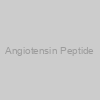 Angiotensin Peptide |
|
20-abx265534 |
Abbexa |
-
Ask for price
-
Ask for price
-
Ask for price
|
|
|
|
 Angiotensin Peptide |
|
abx265534-100tests |
Abbexa |
100 tests |
EUR 312.5 |
 Angiotensin Peptide |
|
abx265534-200tests |
Abbexa |
200 tests |
EUR 512.5 |
 Angiotensin Peptide |
|
abx265534-50tests |
Abbexa |
50 tests |
EUR 225 |
 (Human, Rat, Mouse, Porcine, Canine, Guinea Pig, Rabbit)) Angiotensin IV / Angiotensin II (3-8) (Human, Rat, Mouse, Porcine, Canine, Guinea Pig, Rabbit) |
|
002-28 |
PHOENIX PEPTIDE |
5 mg |
EUR 86.4 |
 Peptide) AT1A, Angiotensin II receptor, (225 237) Peptide |
|
20-abx266391 |
Abbexa |
-
Ask for price
-
Ask for price
-
Ask for price
|
|
|
|
 Peptide) AT1A, Angiotensin II receptor, (225 237) Peptide |
|
abx266391-1ml |
Abbexa |
1 ml |
EUR 487.5 |
 Peptide) AT1A, Angiotensin II receptor, (225 237) Peptide |
|
abx266391-200l |
Abbexa |
200 µl |
EUR 337.5 |
) Angiotensin III / [Des-Asp1]-Angiotensin II (Human, Rat, Mouse, Porcine, Canine, Guinea Pig, Rabbit) |
|
002-31 |
PHOENIX PEPTIDE |
5 mg |
EUR 44.28 |
 amide Peptide) [Sar1]-Angiotensin I / II (1-7) amide Peptide |
|
20-abx266580 |
Abbexa |
-
Ask for price
-
Ask for price
-
Ask for price
|
|
|
|
 amide Peptide) [Sar1]-Angiotensin I / II (1-7) amide Peptide |
|
abx266580-1ml |
Abbexa |
1 ml |
EUR 325 |
 amide Peptide) [Sar1]-Angiotensin I / II (1-7) amide Peptide |
|
abx266580-200l |
Abbexa |
200 µl |
EUR 237.5 |
 Angiotensin I Peptide |
|
20-abx265095 |
Abbexa |
-
Ask for price
-
Ask for price
-
Ask for price
-
Ask for price
-
Ask for price
|
- 10 mg
- 20 mg
- 25 mg
- 50 mg
- 5 mg
|
|
|
 Angiotensin A Peptide |
|
20-abx266011 |
Abbexa |
-
Ask for price
-
Ask for price
-
Ask for price
|
|
|
|
 Angiotensin A Peptide |
|
abx266011-100tests |
Abbexa |
100 tests |
EUR 250 |
 Angiotensin A Peptide |
|
abx266011-200tests |
Abbexa |
200 tests |
EUR 337.5 |
 Angiotensin A Peptide |
|
abx266011-500tests |
Abbexa |
500 tests |
EUR 575 |
 (Human, Rat, Mouse, Porcine, Canine, Guinea Pig, Rabbit) - FAM Labeled) Angiotensin IV / Angiotensin II (3-8) (Human, Rat, Mouse, Porcine, Canine, Guinea Pig, Rabbit) - FAM Labeled |
|
FG-002-28A |
PHOENIX PEPTIDE |
1 nmol |
EUR 267.84 |
 (Human)) Angiotensin II Receptor, Type 1 (181-187) (Human) |
|
002-39 |
PHOENIX PEPTIDE |
200 μg |
EUR 177.12 |
 Angiotensin III Peptide |
|
20-abx265119 |
Abbexa |
-
Ask for price
-
Ask for price
-
Ask for price
|
|
|
|
 (Human, Rat, Mouse, Porcine, Canine, Guinea Pig, Rabbit) - Rhodamine Labeled) Angiotensin IV / Angiotensin II (3-8) (Human, Rat, Mouse, Porcine, Canine, Guinea Pig, Rabbit) - Rhodamine Labeled |
|
FR-002-28 |
PHOENIX PEPTIDE |
1 nmol |
EUR 336.96 |
 (Human, Rat, Mouse, Porcine, Canine, Guinea Pig, Rabbit) - I-125 Labeled) Angiotensin IV / Angiotensin II (3-8) (Human, Rat, Mouse, Porcine, Canine, Guinea Pig, Rabbit) - I-125 Labeled |
|
T-002-28 |
PHOENIX PEPTIDE |
10 μCi |
EUR 1145.88 |
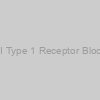 Angiotensin II Type 1 Receptor Blocking Peptide |
|
DF7592-BP |
Affbiotech |
1mg |
EUR 234 |
 Peptide) Angiotensin (1-5) Peptide |
|
20-abx265775 |
Abbexa |
-
Ask for price
-
Ask for price
-
Ask for price
|
|
|
|
 Peptide) Angiotensin (1-9) Peptide |
|
20-abx266137 |
Abbexa |
-
Ask for price
-
Ask for price
-
Ask for price
|
|
|
|
 Peptide) Angiotensin (1-5) Peptide |
|
abx265775-100tests |
Abbexa |
100 tests |
EUR 212.5 |
 Peptide) Angiotensin (1-5) Peptide |
|
abx265775-200tests |
Abbexa |
200 tests |
EUR 287.5 |
 Peptide) Angiotensin (1-5) Peptide |
|
abx265775-500tests |
Abbexa |
500 tests |
EUR 462.5 |
 Peptide) Angiotensin (1-9) Peptide |
|
abx266137-200tests |
Abbexa |
200 tests |
EUR 262.5 |
 Peptide) Angiotensin (1-9) Peptide |
|
abx266137-500tests |
Abbexa |
500 tests |
EUR 375 |
 [Val5] Angiotensin I Peptide |
|
20-abx265184 |
Abbexa |
-
Ask for price
-
Ask for price
-
Ask for price
|
|
|
|
 [Val5] Angiotensin I Peptide |
|
abx265184-1mg |
Abbexa |
1 mg |
EUR 287.5 |
 [Ile7] Angiotensin III Peptide |
|
20-abx265884 |
Abbexa |
-
Ask for price
-
Ask for price
-
Ask for price
|
|
|
|
 [Val4]-Angiotensin III Peptide |
|
20-abx265890 |
Abbexa |
-
Ask for price
-
Ask for price
-
Ask for price
|
|
|
|
 [Ile7] Angiotensin III Peptide |
|
abx265884-200tests |
Abbexa |
200 tests |
EUR 225 |
 [Ile7] Angiotensin III Peptide |
|
abx265884-500tests |
Abbexa |
500 tests |
EUR 312.5 |
 [Val4]-Angiotensin III Peptide |
|
abx265890-200tests |
Abbexa |
200 tests |
EUR 225 |
 [Val4]-Angiotensin III Peptide |
|
abx265890-500tests |
Abbexa |
500 tests |
EUR 312.5 |
) Angiotensin I Peptide (Biotin) |
|
abx265208-1mg |
Abbexa |
1 mg |
EUR 300 |
 / Angiotensin II (1-7) (Human, Rat, Mouse, Porcine, Canine, Guinea Pig, Rabbit) - Rhodamine Labeled Purified IgG) Angiotensin I (1-7) / Angiotensin II (1-7) (Human, Rat, Mouse, Porcine, Canine, Guinea Pig, Rabbit) - Rhodamine Labeled Purified IgG |
|
FR-G-002-24 |
PHOENIX PEPTIDE |
100 μl |
EUR 672.84 |
, AT1, ATE. Peptide) Angiotensin II Receptor type 1 (181 187), AT1, ATE. Peptide |
|
20-abx265875 |
Abbexa |
-
Ask for price
-
Ask for price
-
Ask for price
|
|
|
|
, AT1, ATE. Peptide) Angiotensin II Receptor type 1 (181 187), AT1, ATE. Peptide |
|
abx265875-200tests |
Abbexa |
200 tests |
EUR 225 |
, AT1, ATE. Peptide) Angiotensin II Receptor type 1 (181 187), AT1, ATE. Peptide |
|
abx265875-500tests |
Abbexa |
500 tests |
EUR 312.5 |
 [Val5,Asn9]-Angiotensin I Peptide |
|
20-abx266205 |
Abbexa |
-
Ask for price
-
Ask for price
-
Ask for price
|
|
|
|
 [Val5,Asn9]-Angiotensin I Peptide |
|
abx266205-100tests |
Abbexa |
100 tests |
EUR 287.5 |
 [Val5,Asn9]-Angiotensin I Peptide |
|
abx266205-200tests |
Abbexa |
200 tests |
EUR 400 |
 [Val5,Asn9]-Angiotensin I Peptide |
|
abx266205-500tests |
Abbexa |
500 tests |
EUR 700 |
 Angiotensin I [Des-Asp1-] Peptide |
|
20-abx266145 |
Abbexa |
-
Ask for price
-
Ask for price
-
Ask for price
|
|
|
|
 Angiotensin I [Des-Asp1-] Peptide |
|
abx266145-200tests |
Abbexa |
200 tests |
EUR 262.5 |
 Angiotensin I [Des-Asp1-] Peptide |
|
abx266145-500tests |
Abbexa |
500 tests |
EUR 375 |
 Angiotensin II Receptor, AT2, Amino Terminal Fragment Peptide |
|
abx266736-1ml |
Abbexa |
1 ml |
EUR 412.5 |
 Angiotensin II Receptor, AT2, Amino Terminal Fragment Peptide |
|
abx266736-200l |
Abbexa |
200 µl |
EUR 212.5 |
 Peptide (OVA)) Angiotensin I (Ang I) Peptide (OVA) |
|
abx651111-5mg |
Abbexa |
5 mg |
EUR 500 |
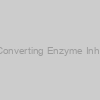 Angiotensin Converting Enzyme Inhibitor Peptide |
|
20-abx266151 |
Abbexa |
-
Ask for price
-
Ask for price
-
Ask for price
|
|
|
|
 Angiotensin Converting Enzyme Inhibitor Peptide |
|
abx266151-200tests |
Abbexa |
200 tests |
EUR 275 |
 Angiotensin Converting Enzyme Inhibitor Peptide |
|
abx266151-500tests |
Abbexa |
500 tests |
EUR 387.5 |
) Angiotensin II (Human, Rat, Mouse, Porcine, Canine, Guinea Pig, Rabbit) |
|
002-12 |
PHOENIX PEPTIDE |
5 mg |
EUR 63.72 |
 Peptide) Human Angiotensin I (Ang I) Peptide |
|
abx265095-1mg |
Abbexa |
1 mg |
EUR 287.5 |
 Peptide (OVA)) Angiotensin III (Ang III) Peptide (OVA) |
|
abx651227-5mg |
Abbexa |
5 mg |
EUR 500 |
 Peptide) Biotin Angiotensin I (Biotin) Peptide |
|
20-abx265208 |
Abbexa |
-
Ask for price
-
Ask for price
-
Ask for price
|
|
|
|
 Peptide) Human Angiotensin III (Ang III) Peptide |
|
abx265119-1mg |
Abbexa |
1 mg |
EUR 225 |
 - Cy3 Labeled) Angiotensin A (Human) - Cy3 Labeled |
|
FC3-002-36 |
PHOENIX PEPTIDE |
1 nmol |
EUR 421.2 |
 - FAM Labeled) Angiotensin A (Human) - FAM Labeled |
|
FG-002-36A |
PHOENIX PEPTIDE |
1 nmol |
EUR 135 |
 Peptide (BSA)) Angiotensin 1-7 (Ang1-7) Peptide (BSA) |
|
20-abx651030 |
Abbexa |
-
Ask for price
-
Ask for price
-
Ask for price
-
Ask for price
-
Ask for price
|
- 100 ug
- 10 ug
- 1 mg
- 200 ug
- 50 ug
|
|
|
 Peptide (OVA)) Angiotensin 1-7 (Ang1-7) Peptide (OVA) |
|
20-abx651031 |
Abbexa |
-
Ask for price
-
Ask for price
-
Ask for price
-
Ask for price
-
Ask for price
|
- 100 ug
- 10 ug
- 1 mg
- 200 ug
- 50 ug
|
|
|
 Peptide (BSA)) Angiotensin 1-7 (Ang1-7) Peptide (BSA) |
|
abx651030-5mg |
Abbexa |
5 mg |
EUR 550 |
 Peptide (OVA)) Angiotensin 1-7 (Ang1-7) Peptide (OVA) |
|
abx651031-100g |
Abbexa |
100 µg |
EUR 1800 |
 Peptide (OVA)) Angiotensin 1-7 (Ang1-7) Peptide (OVA) |
|
abx651031-10g |
Abbexa |
10 µg |
EUR 475 |
 Peptide (OVA)) Angiotensin 1-7 (Ang1-7) Peptide (OVA) |
|
abx651031-50g |
Abbexa |
50 µg |
EUR 575 |
 - FITC Labeled) Angiotensin A (Human) - FITC Labeled |
|
FG-002-36B |
PHOENIX PEPTIDE |
1 nmol |
EUR 135 |
) [Lys0]-Angiotensin II (Human, Rat, Mouse, Porcine, Canine, Guinea Pig, Rabbit) |
|
002-13 |
PHOENIX PEPTIDE |
5 mg |
EUR 114.48 |
) [Sar1]-Angiotensin II (Human, Rat, Mouse, Porcine, Canine, Guinea Pig, Rabbit) |
|
002-14 |
PHOENIX PEPTIDE |
5 mg |
EUR 58.32 |
 (Human, Rat, Mouse, Porcine, Canine, Guinea Pig, Rabbit)) Angiotensin II (4-8) (Human, Rat, Mouse, Porcine, Canine, Guinea Pig, Rabbit) |
|
002-29 |
PHOENIX PEPTIDE |
5 mg |
EUR 58.32 |
 (Human, Rat, Mouse, Porcine, Canine, Guinea Pig, Rabbit)) Angiotensin II (5-8) (Human, Rat, Mouse, Porcine, Canine, Guinea Pig, Rabbit) |
|
002-32 |
PHOENIX PEPTIDE |
500 μg |
EUR 86.4 |
 - Biotin Labeled) Angiotensin A (Human) - Biotin Labeled |
|
B-002-36 |
PHOENIX PEPTIDE |
20 μg |
EUR 102.6 |
 Peptide (OVA)) Human Angiotensin I (Ang I) Peptide (OVA) |
|
abx651835-5mg |
Abbexa |
5 mg |
EUR 525 |
 - EIA Kit) Angiotensin II (Human, Rat, Mouse, Porcine, Canine, Guinea Pig, Rabbit) - EIA Kit |
|
EK-002-12 |
PHOENIX PEPTIDE |
96 wells |
EUR 603.72 |
Global proteome knowledge of 105 TCGA breast most cancers samples obtained from the Clinical Proteomic Tumor Analysis Consortium (CPTAC) had been used to judge the prognostic worth in protein ranges. Consistently, excessive expression stage of PRKACB protein was related to favorable prognosis, whereas excessive ZNF292 and STMN1 protein expression ranges indicated poor prognosis. The glycolysis-related gene signature would possibly present an efficient prognostic predictor and a brand new perception for individualize administration of breast most cancers sufferers.

